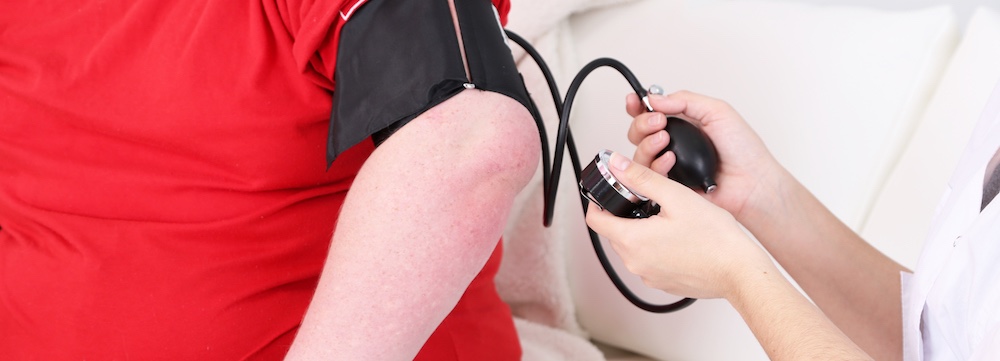The Connection Between Sodium and Obesity

There has been a great deal of debate over the connection between sodium consumption and excess weight. The conclusion, as with most controversial nutritional research these days, is that the jury is still out. However, to consider the effects of sodium on the body, we must investigate how much sodium the average American is consuming and secondly what the effects of sodium are on the body.
The average American consumes more than twice the sodium considered an adequate Intake level by the Institute of Medicine. Many processed and restaurant foods that we consume and enjoy are very high in sodium. It is, after all, a flavor enhancer, and a preservative. We don’t realize how much sodium we’re consuming because years of eating high sodium foods can make our sense of taste numb to this excess.
While the sodium itself may not be a direct cause of excess weight (it does not cause excess fat in and of itself), it does have follow-on effects on the body. Excess sodium can make us feel dehydrated which in turn can make us eat more – a phenomenon called head hunger. Have you ever noticed how you can drink several cups of water at a big restaurant meal and still feel parched? That’s because the water you’re consuming is only offsetting high levels of sodium, not hydrating you. Further, to fight the thirst, many of us will pick up a refreshing and often sugary drink – juice, soda, etc.
So, when we look at sodium in excess of the essential levels that we need to survive, we realize that it may not be all that good for us. Further, we can see from nutritional labels and packaging that it is everywhere, and in staggeringly large quantities. That’s why, after bariatric surgery, patients need to focus on healthful, minimally processed foods and spend time cooking these healthy foods themselves.
While you cannot go through the rest of your life without an occasional indulgence – something that may be high in sodium, sugar or fat – limiting these diet busters can only help. Try to remove 25%, or better yet 50% of the sodium from your diet for a month and see how that affects your weight and how you see yourself in the mirror (yes sodium can also cause bloating). You may find that restricting your sodium intake may be just what you need to kick your lifestyle change into high gear.
